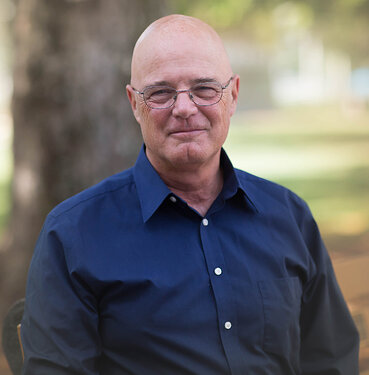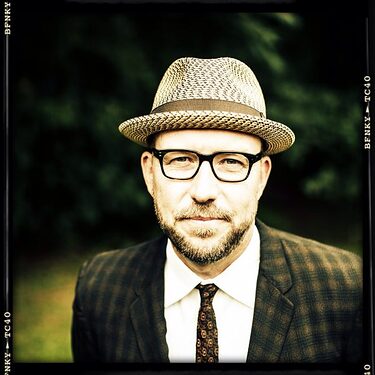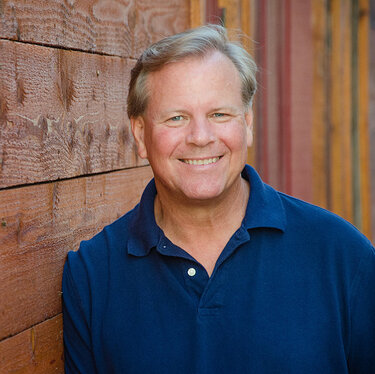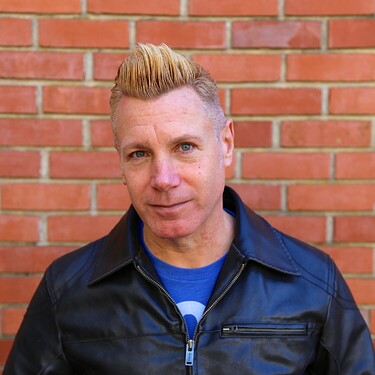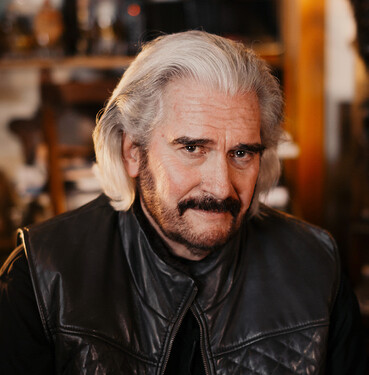[This will be a lengthy multi-part post with lots of detailed data but don’t let that fool you—the thread is intended to spur discussion, observations, and reflections on the Emergent Church movement and its leaders. This might include history from the time, personal anecdotes of experiences with the movement or its churches, or observations on where things ended up. Because of the amount of detail, I will break it up between two posts with the possibility of future additions.]
Whatever happened to the Emergent/Emerging Church?
For those too young to remember or not paying attention at the time, the Emergent/Emerging Church was a concept that had a great deal of evangelical ink spilled about it across the 2000s.
I suppose the best summary I can give is to say that the Emergent movement began as a missiological theory about the current state of Western culture and the best ways for Christians to appeal to and engage with that culture as a group. It had a lot to do with the presumed distinctions between living in a “modern society” versus a “postmodern society” and what those distinctions meant for Christians. A lot of time was spent theoretically pontificating on the meaning and nature of cultures, the general ways people know and understand and communicate, and then theorizing on the best ways to apply whatever that theory was to our situation in America at that moment. Whatever else it meant to any particular individual, Emergent tended to be a critique of “tradition” and “status quo” organized religion.
The list of the main leaders who were associated with the Emergent label were Brian McLaren, Tony Jones, Doug Pagitt, Spencer Burke, Dan Kimball, Leonard Sweet, Chris Seay, Rob Bell, Erwin McManus, Ryan Bolger, Scot McKnight, and Mark Driscoll. There are others, such as Donald Miller, author of Blue Like Jazz: Nonreligious Thoughts on Christian Spirituality (Thomas Nelson, 2003), whose writing encapsulated the aesthetic of the postmodern “spiritual seeker” searching for “authentic community.” Finally, there is Phyllis Tickle, whose books The Great Emergence: How Christianity is Changing and Why (Baker Books, 2008) and Emergence Christianity: What It Is, Where Its Going, and Why It Matters (Baker Books, 2012) worked as official history of the movement after the label had begun to fade from relevance.
There were also men like Tim Keller and Ed Stetzer, who might be seen as relevant to the Emergent discussion through their cultural commentary and missiological theories, but were never directly associated with the Emergent Church. In this vein, there were numerous church planters and Acts 29 pastors who were adjacent to and influenced by the Emergent Church through Mark Driscoll but were more doctrinally orthodox than the main Emergent leaders or just later to the scene in general so they never took the name. Likewise, Rick Warren and Bill Hybels are sometimes connected to the movement through the massive influence of their “seeker-friendly” churches and their willingness to “rethink” traditional ministry, but their connection to Emergent was not direct as far as I can tell.
There were many attempts by conservatives to understand the movement and to chart its history:
- D.A. Carson wrote the book Becoming Conversant with the Emergent Church: Understanding a Movement and Its Implications (Zondervan, 2005).
- Mark Driscoll wrote a history and overview of the movement for the Criswell Theological Review in 2006.
- Scot McKnight wrote an article in Christianity Today in 2007 that was intended to be a taxonomy of the movement.
- Mark DeVine wrote an overview of the movement and its influence on Southern Baptists in 2007.
- Ed Stetzer wrote an overview for the Baptist Center for Theology and Ministry Conference in 2008.
Additionally, there were hundreds of blog posts—both pro and con—that discussed, debated, and deliberated the movement and its trajectory written throughout the time. Some are lost forever while others are still active. Many can still be traced back through the Wayback Machine if a URL can be found. Because the movement came about alongside the internet, there is a pretty hefty digital trail.
Unsurprisingly, the term “emergent” was notoriously difficult to define and at some point tended to describe the theologically liberal elements of the overall group. Mark Driscoll, for instance, makes a distinction between the “emergent church” and the “emerging church,” placing himself more in the “emerging” category. Dan Kimball embraced a similar distinction. Despite this nuanced distinction, most people used the two terms synonymously. Tony Jones, for instance, thought the debates over the terms were a silly waste-of-time. However, because many evangelicals were being warned about the dangers of the Emergent movement, the nuance was embraced by men like Dan Kimball and Scot McKnight—who wanted most of what Emergent had to offer but not the full theological liberalism that increasingly went with it.
Dan Kimball defined the Emerging Church as marked by a general “rethinking” of the church. This tended to be how definitions went—describing a common trait or a feeling as opposed to any kind of doctrinal statement or goal. Even the definition of “mission” and “missional” (which came into common use during this time and often connected with this movement) were not obvious or clear, as the ideas of what constituted evangelism and preaching were diverse.
Tony Jones was only slightly more helpful, describing the Emergent Church like this:
Within Christianity, many people are rethinking the structures of Christianity (prevalent on the “left”) and the dogmas of Christianity (prominent on the “right”). So an “emergent” Christian would really be anyone who is pushing against the traditional hierarchies and theologies of 20th century Christianity.
In other words, Jones (and, with him, many Emergents) wanted the theology of the mainline church with the free-range structure of evangelicalism. This idea gets elaborated a little more by Jones in the same interview, which can serve as a helpful summary of the guiding ethos behind the Emergent Church:
I was reared in a mainline, Congregational church. The theology there was pretty progressive, but the bureaucracy was depressingly entrenched—in fact, it still is. By “bureaucracy,” I mean committees, policies, parliamentary procedure, votes, ordination, etc. Emergent Christians are likely to question all of these accoutrements as extraneous to the gospel. But many of my emergent friends grew up in evangelicalism, so it’s the stultifying theology of conservatism that they’re challenging.
So, we return to the original question: whatever happened to the Emergent Church?
As for the term, it looks like the fad wore off. Some liked the term. Others shunned it. Others embraced it for a time but ended up leaving it behind. Fashion changed. It was probably destined to have a short shelf-life as it came to define a very specific set of aesthetic traits and arguments that were popular in certain young churches in the early 2000s. Also, the movement itself began by its resistance to set labels, preferring less confining terminology. No label would last forever.
As for the ideas of the Emergent church, plenty of them are still in circulation and some have become mainstream evangelical. The pragmatism of the evangelicalism of the time hasn’t faded. The anxious desire to chase after the world’s praise or to use worldly means to grow and sustain the church have not died off. Distrust of the Bible and a reliance on human cleverness to do the work of the Holy Spirit will always be with us.
Further, the mainstreaming of the “evangelical left” is one of the lasting legacies of the Emergent church. The “deconstruction movement” has a lot in common with what the Emergent Church was seeking to do in its own way, with only slightly different language.
What might the Emergents say about their work? Mike Clawson, curator of Emergent Village cohorts, said in 2014 regarding the changing landscape of the Emergent movement:
In many ways this work has been an unqualified success. From arts, to justice, to ancient-future spirituality, to alternative forms of church, to postmodern approaches to theology — ideas and practices that were fairly unique to the emergent conversation a decade ago are now commonplace within mainstream Christianity, and continue to spread. Thousands of churches, cohorts, neo-monastic communities, and other types of faith-based collectives incorporating emergent influences have also been planted over the years. And dozens of spin-off groups and ministries have formed to emphasize one aspect or another of Emergence.
As for the leaders of the movement, most of them have seamlessly segued into full-blown “progressive Christianity,” where their hatred of God’s Word and their love of images has only grown more obvious and more commonplace. Whereas it was fashionable to claim some ambiguity about not being defined by labels like “conservative" or "liberal” in the early 2000s, the ones who have fully embraced progressive ideologies happily put themselves within the “progressive Christian” camp nowadays. So much for the limitations of labels!
Throughout the Emergent movement, many of its leaders loved to skate the line of heresy and embraced the label heretic. It was a more theologically-charged word than iconoclast. For instance, The Heretic was the title of the 2018 documentary about Rob Bell. It is quite obvious now why many did this and it seems that even the word heretic may have lost some of its bite through it all, but that’s my own perception.
There does seem to be a stream of leaders who were connected with the Emergent movement who continue to promote a mushy spiritualism devoid of doctrinal clarity. There is still a market for such teachers so I suppose they will continue to have platforms until those wells run dry.
[My next post will be an individual profile of 6 major figures connected with the Emergent Church—charting their history with the movement and concluding with their current activities and thinking.]
